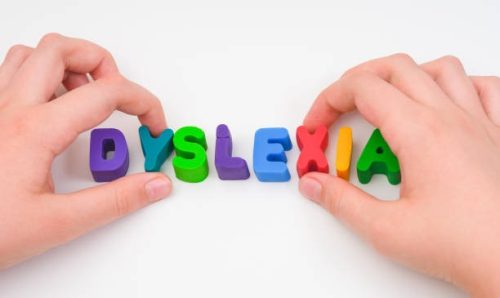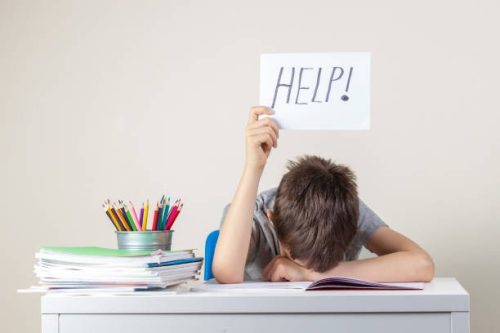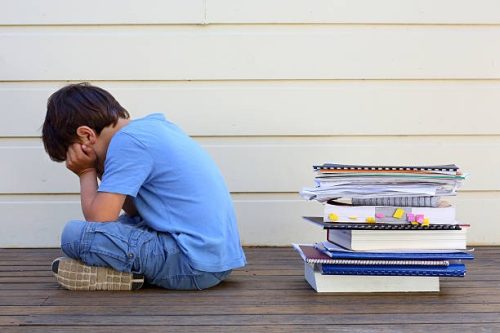In the general description, a learning disability is a brain condition that affects a student’s ability to receive, send, and process certain information. A child with a learning disability may experience problems in speaking, listening, writing, reading, and understanding mathematical functions and general comprehension.
Learning disability in children are not limited to a particular condition. It can include a group of mental illnesses, including dyspraxia, dyslexia, dysgraphia, and dyscalculia. Each type of this learning disability may co-exist with one another, and treatments may vary according to each of the condition’s severity.

Source: pixabay.com
What Causes Learning Disabilities?
Experts believe that there is no specific cause for learning disability as it occurs depending on a child’s cognitive function. However, according to research, some factors can cause a learning disability. Some of the following include:
- Heredity
- Illness During And After Birth
- Drug And Alcohol Consumption
- Poor Nutrition
- Physical Trauma
- Poor Child Development Inside The Uterus
- Low Birth Weight
- Premature Or Prolonged Labor
- Stress During Infancy
- Increased Exposure To Toxins

Source: pixabay.com
Does A Learning Disability Mean My Kid Is Less Intelligent Compared To Others?
No. A child who deals with a learning disability is not less intelligent than his peers. The condition only makes him process information slowly and somehow differently. The child with LD often requires a different approach and supplemental accommodations to encourage him to master significant classroom subjects and concepts.
Children with a learning disability are considerably at a higher risk for disruptive behavior disorder or attention problems. However, they are not exempted from potential success. Children with learning disabilities know they are special and need extra support. They know that smaller things are just worth so much more to them. Thus, a little accommodation is greatly valued.
Learning disability is not about the IQ average. Instead, it revolves around the child’s difficulty learning new things. Every new experience can be overwhelming and demanding, so they need assistance. But then again, it does not mean he can’t develop skills and learn new ideas. It takes time for the child to fully understand a concept.
If parents and teachers notice some unusual habit or behavior, it is a must to consult a specialist.

Source: pixabay.com
Does Learning Disability Impacts Emotional Health?
Indeed it does. A child with a learning disability is often aware of their situation, which makes it more complicated to handle due to emotional distress. A kid who has problems understanding things around him may have emotional setbacks. When that happens, it might form another issue concerning mental health.
A learning disability, though a stand-alone condition, can often impact the emotional perception of the child. It may cause him to feel agitated when he can’t comprehend. It can increase the feeling of worthlessness in some instances. It can create disruptive emotions connecting to a child’s insecurity and sadness when seen as special.
What Are The Signs Of Learning Disabilities?
Children with learning disabilities often have trouble writing, reading, or performing basic tasks. They often have several related signs that do not go away easily and do not improve over time. The signs and symptoms also vary from one child to another. Most of them are common, but it does not mean that these signs are intended to screen the learning disability condition in general. One must still seek professional help or advice to get a proper diagnosis.
Common signs and symptoms of learning disability may include the following:
- Problems with writing or reading
- Inability to formulate ideas and concept
- Hard time understanding words
- Problems with mathematical numbers
- Having a hard time listening
- Poor sequencing and organization skills
- Poor short-term and long-term memory
- Inability to pay attention
- Inability to follow several specific directions
- Trouble telling time and schedules
- Problems with dealing with changes
- Inability to socially interact directly
- Problems with recalling facts and situations
- Trouble reading body language and facial expressions
- Problems with communication
- Inability To Gasp Or Continue Communication

Source: pixabay.com
The child may experience some or all of these learning difficulties. And when these learning issues become a significant obstacle in daily life, the child may feel less confident. As he may begin to fall behind despite putting in a lot of effort, he will eventually develop emotional and mental health issues regarding his inabilities.
When a child continues to struggle despite his remediation attempts with one-on-one educational support, the child may require specialized intervention administered by a professional.
Is There A Cure For Learning Disorder?
Unfortunately, there is no cure for learning disabilities. However, many treatments and interventions can help a child to achieve success. These include personalized teaching and processing style, information presentation, and tailored academic structure. Some of these therapy treatments and professional assistance can be effective.
Final Thoughts
The secret to successful learning is proper treatment and academic coordination. The people surrounding the child with a learning disability should better understand the situation, promote patience, and encourage acceptance and awareness. It will help the child feel safe in life and can make him appreciate even the little achievements he makes.
